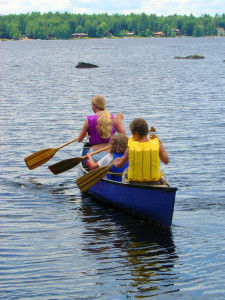
Your child has finally come home after a long week of high-stakes testing. They immediately go to their room to take a nap, announcing they never want to go to school again.
Problem: Your child has finally come home after a long week of high-stakes testing. They immediately go to their room to take a nap, announcing they never want to go to school again. Of course, that’s not an option. There’s still more than a month left of the school year.
Solution: Letting your child mail it in for the remainder of the school year can still have detrimental effects. Grades can slip. Future prospects could be at risk. Summer school might be necessary.
Although it’s primarily the role of the teacher to keep the students engaged through this lame duck period, you can also help by:
Remaining vigilant
Staying in touch with the teacher
Organizing fun, educational activities at home
Giving them something to look forward to
Remain vigilant
It’s easy for you to start mailing it in. The good habits you got into during the school year, like regularly checking your child’s planner and homework, are easy to slip out of. This is the time to check those things even more thoroughly than you did before. If you think they’ll start to slip, you’ll want to catch them in time.
Stay in touch with the teacher
Nothing serves as a better reminder to the teacher that you’re still paying attention like the quick email or phone call. Even if you don’t notice anything out of the ordinary, it doesn’t hurt to drop a note asking if there is any way you can help during the last month of school. You might even have an opportunity to volunteer for some fun end-of-the-year activities.
Organize fun, educational activities
Allowing your child to veg out in front of the TV might seem like common sense after the ordeal they just went through, but it’s not very productive. If they have summer plans, it will be hard to ramp them back up into being active. Instead, now’s the time to book that trip to the museum, art gallery, or nature walk. Keep their brain engaged, even if it’s not working hard at school.
Give them something to look forward to
Yes, they are probably looking forward to the last day of school and summer, but after testing there’s really nothing else to prepare for. They can’t think as far in advance as the start of the new school year. Make sure you remind them about the fun trips you (hopefully) have planned for the summer, the job or internship they are going to start, or the camp they are going to attend. That will help them stay focused on the finish line.



